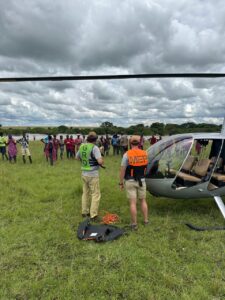 In January, we were thrilled to host our patron, Princess Marie of Liechtenstein at Mara Elephant Project headquarters in the Mara. She was able to meet the staff, visit the rangers in the field, visit the co-existence farm and participate in a collaring operation for bull elephant Hannibal. She was joined by MEP’s Image Ambassador Jeffrey Wu to capture her visit.
In January, we were thrilled to host our patron, Princess Marie of Liechtenstein at Mara Elephant Project headquarters in the Mara. She was able to meet the staff, visit the rangers in the field, visit the co-existence farm and participate in a collaring operation for bull elephant Hannibal. She was joined by MEP’s Image Ambassador Jeffrey Wu to capture her visit.
We announced the launch of a new ranger team in Mosiro on World Wildlife Day. Mosiro is an ecologically important area for elephants because it forms a linkage between the Loita Forest, Mau Forest, the Maasai Mara, Natron in Tanzania and Amboseli, yet elephants in this area are facing several threats. They are competing with livestock for scarce grazing resources, encountering conflict at water points, and traversing a growing number of farms and settlements, putting them into conflict with the community. A permanent ranger team was needed to protect not only the elephants, but the communities living in Mosiro as well. The new ranger team is recruited directly from people living in Mosiro and on February 10, 41 potential candidates arrived at one of the local primary schools to be considered for the job in conservation. The recruitment started with a 3 km timed run and then moved into interviews. We selected seven candidates for this co-ed team, and they began their six-week basic tactical introduction training course at MEP HQ in March. Over the last decade, MEP has developed core packages for the basic requirements of a ranger in our ecosystem and we’ve opened our training to strategic partners in the ecosystem to provide bespoke training to enhance the safe and effective deployment of rangers.
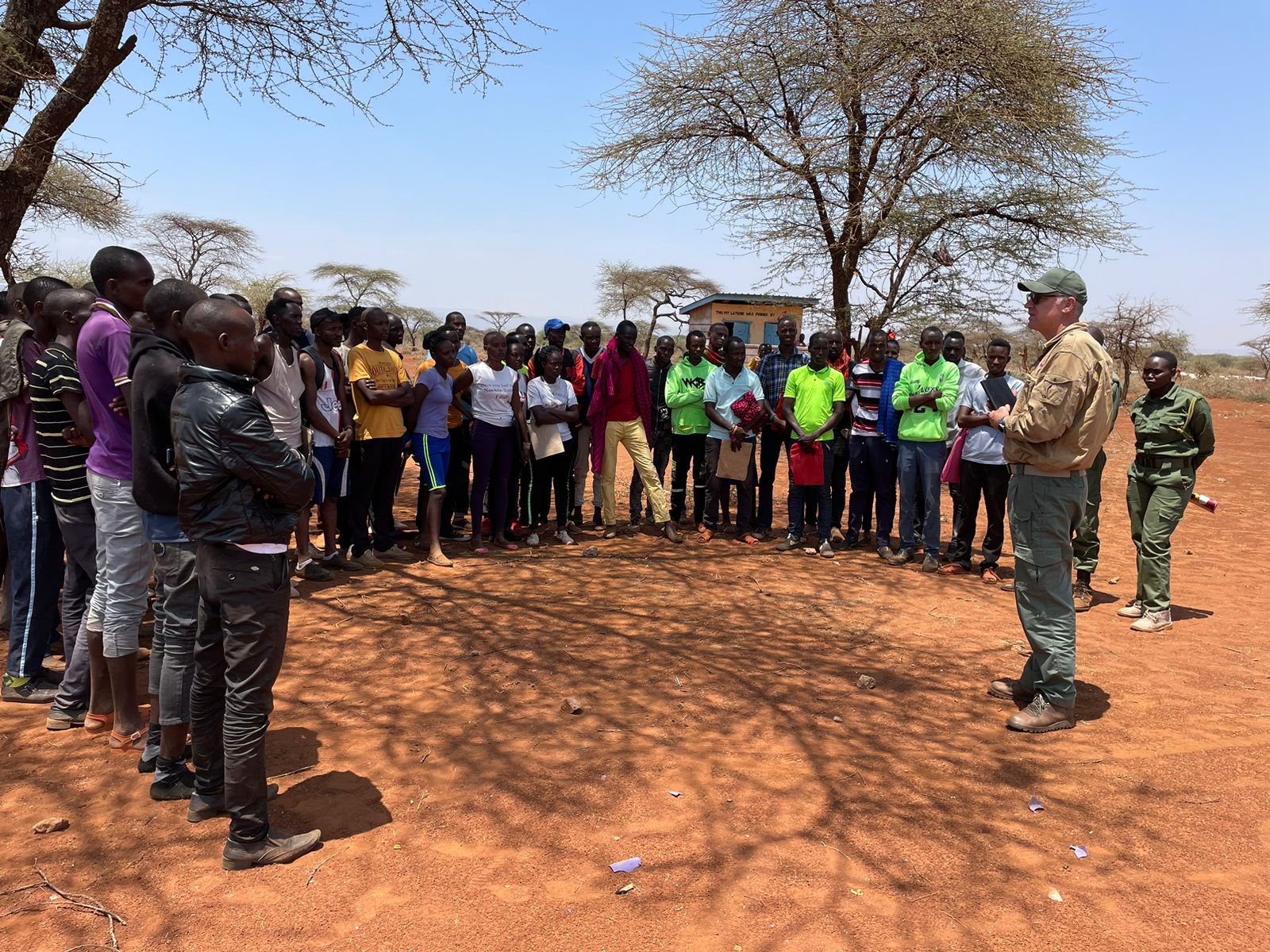
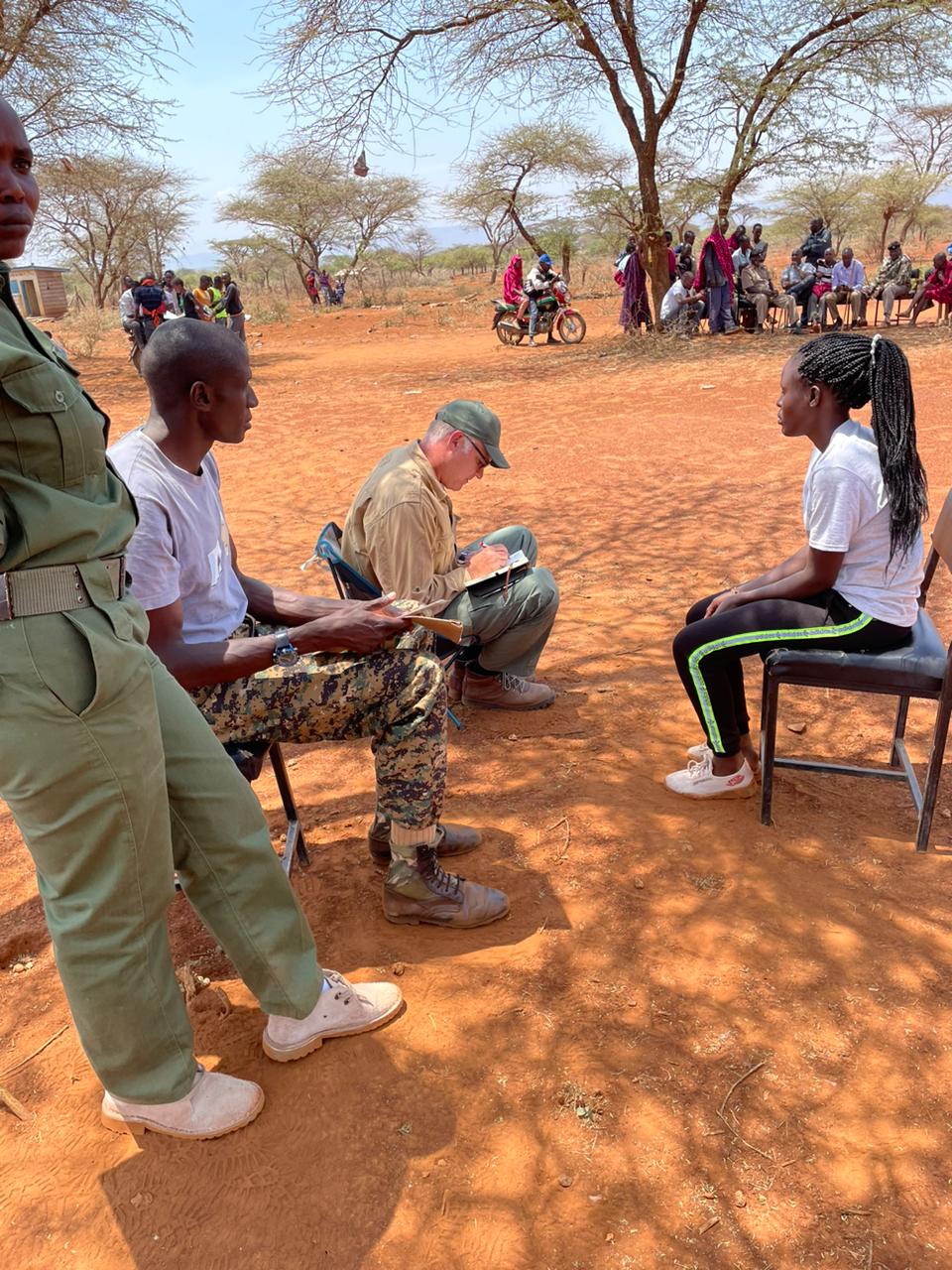

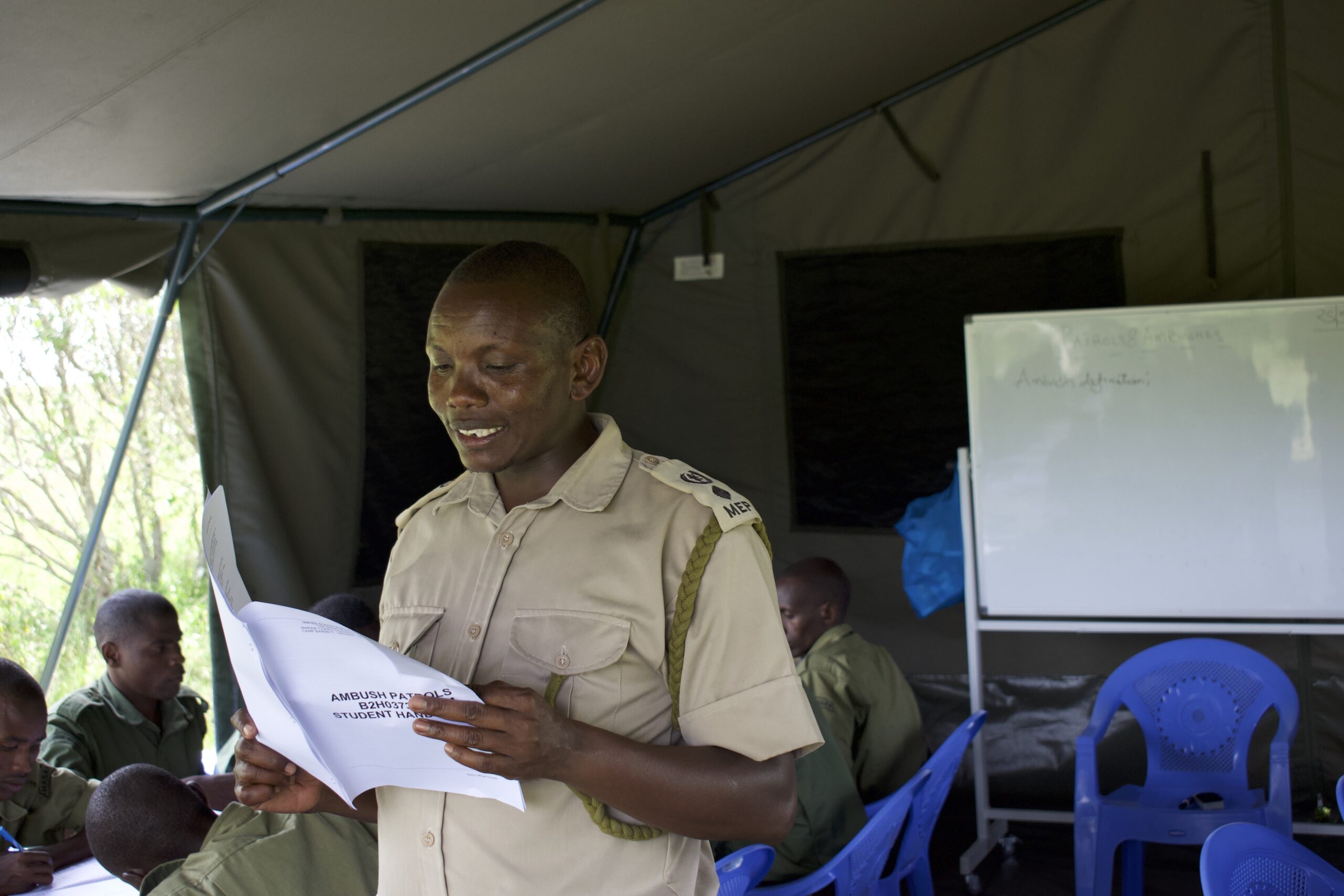

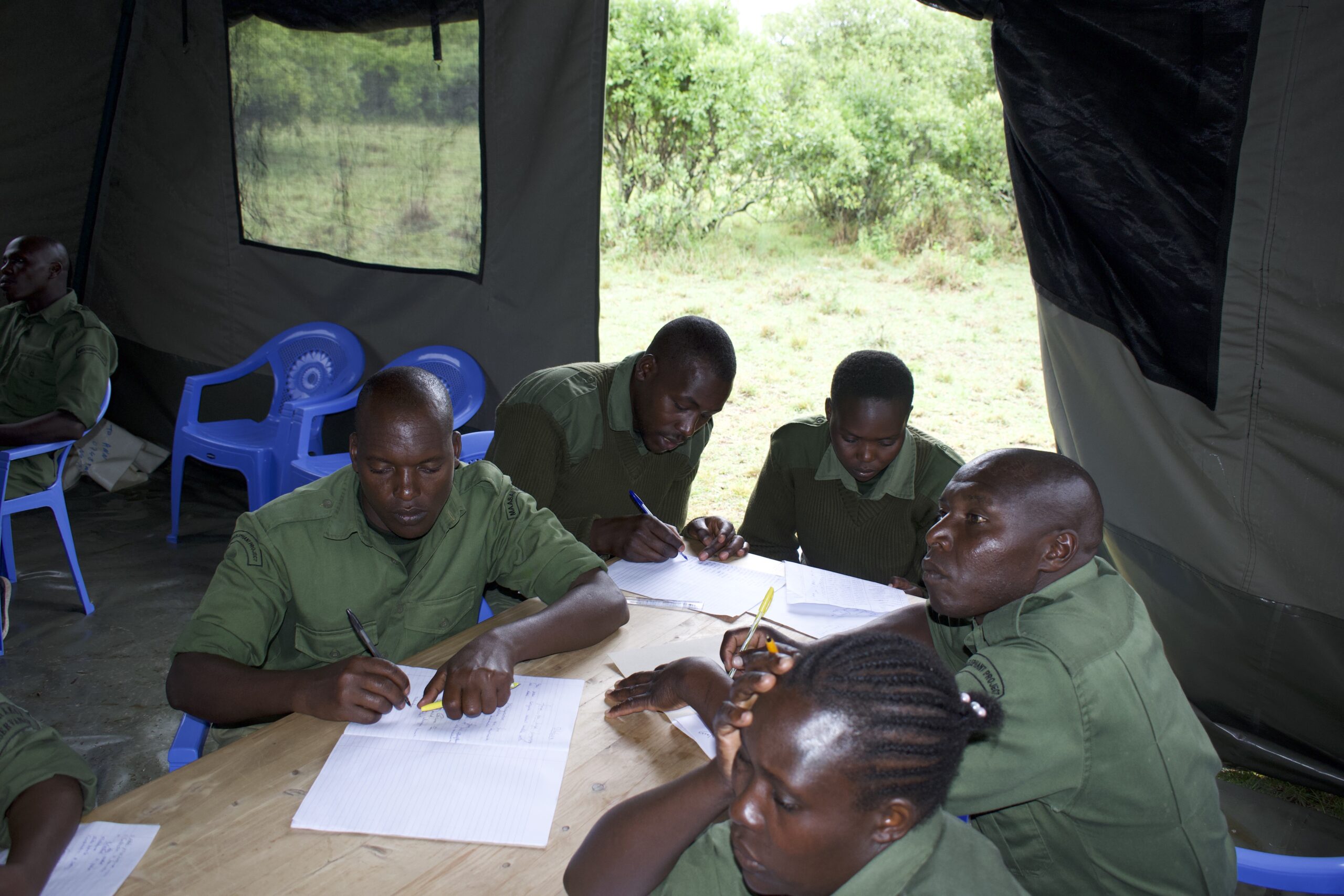

 The helicopter provided aerial support for a total of seven collaring operations alongside Kenya Wildlife Service and the Wildlife Research and Training Institute in the first quarter of 2023.
The helicopter provided aerial support for a total of seven collaring operations alongside Kenya Wildlife Service and the Wildlife Research and Training Institute in the first quarter of 2023.
Gurcharan Roopra Photography and Jeffrey Wu Photography
On February 8, a herd of elephants was trapped inside fences within community land and the helicopter was called in to rapidly respond. While elephants can easily move through fences, they are sometimes hesitant especially with young calves in tow. The MEP “Foxtrot” ranger team responded to push the elephants out of the fences, and spent all day trying to move them out, and weren’t able to convince them from the ground. That’s when I responded with the MEP helicopter to push them through the fences and back into the safety of a conservancy. While the helicopter is always our last resort, it’s an important tool used alongside our rangers on the ground to rapidly respond to situations where elephants and people meet.

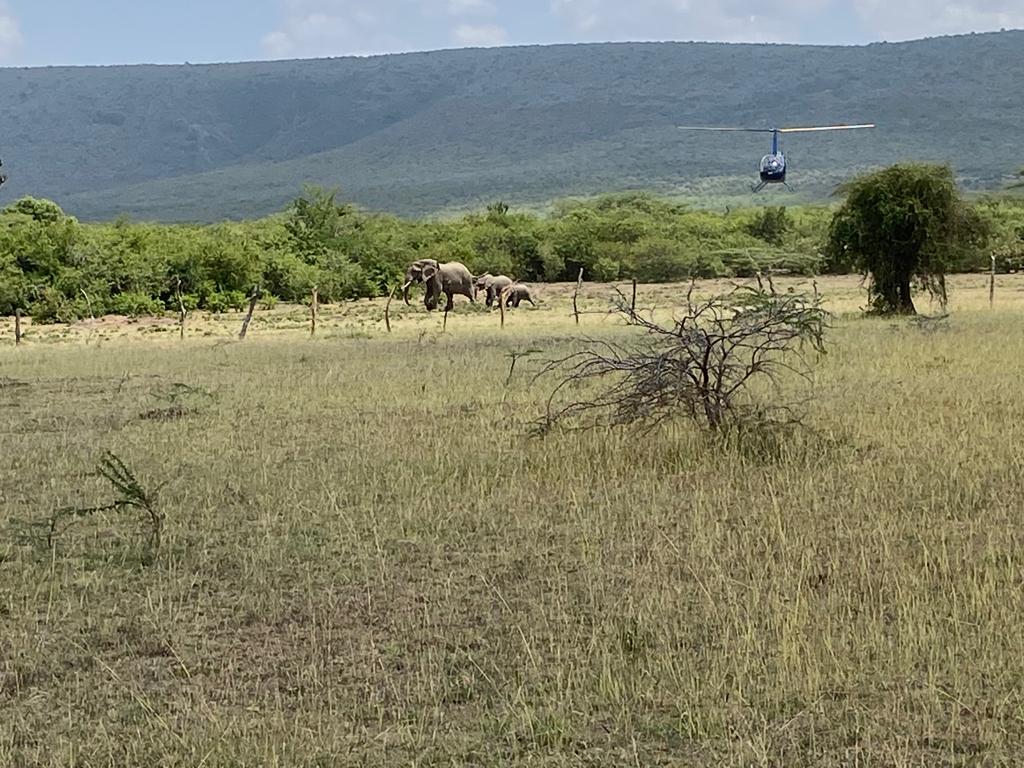
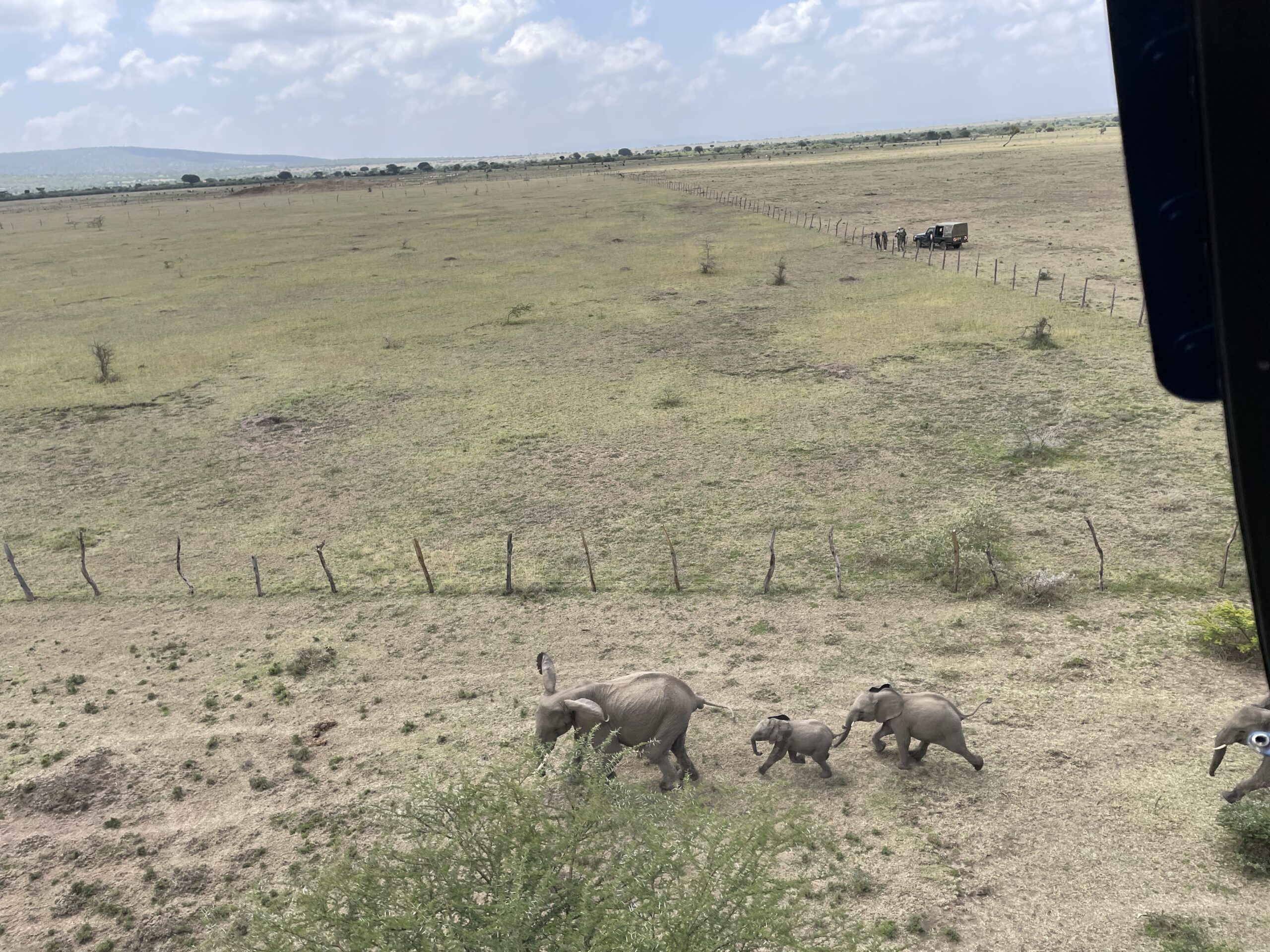
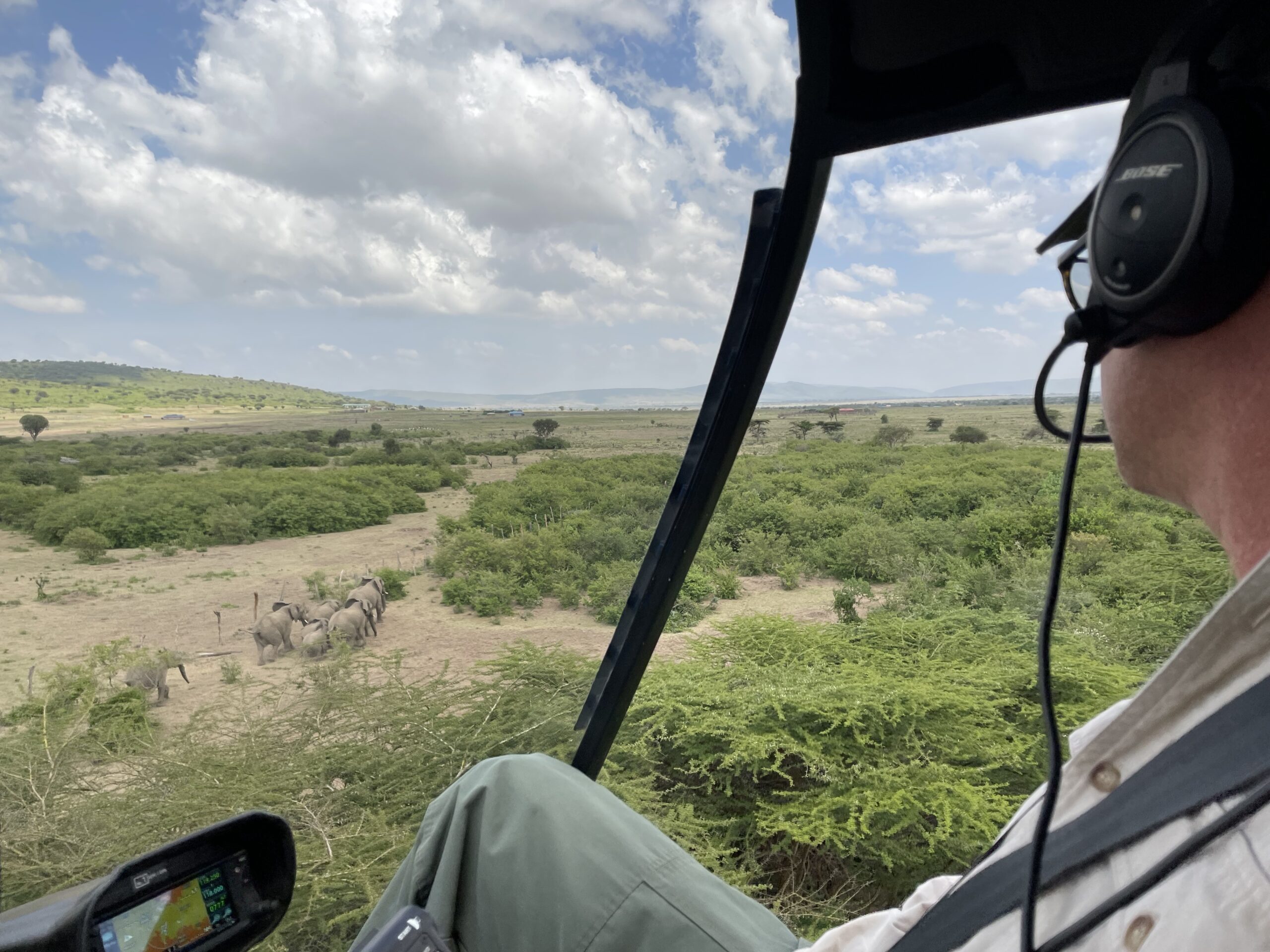
 Speaking of being first responders, MEP acts as first responders to both the people and wildlife in the ecosystem, both on land and, sometimes, in the water. Many of MEP’s community rangers and researchers operate near water and in February, they had the opportunity to participate in a Waterborne Assisted Recovery Training given by Focused Conservation. The one-day course covered search and rescue procedures and water safety. Thank you to Focused Conservation for conducting the training and the Mara River Lodge for the use of their pool. All MEP staff graduated with their water safety certificate.
Speaking of being first responders, MEP acts as first responders to both the people and wildlife in the ecosystem, both on land and, sometimes, in the water. Many of MEP’s community rangers and researchers operate near water and in February, they had the opportunity to participate in a Waterborne Assisted Recovery Training given by Focused Conservation. The one-day course covered search and rescue procedures and water safety. Thank you to Focused Conservation for conducting the training and the Mara River Lodge for the use of their pool. All MEP staff graduated with their water safety certificate.
“It was one of the more exciting trainings I’ve done at MEP. I learned a lot and had fun, kayaking for search and rescue, water safety procedures and much more. I’m glad I got the opportunity to do it.”
Research Assistant Caroline Kagume

